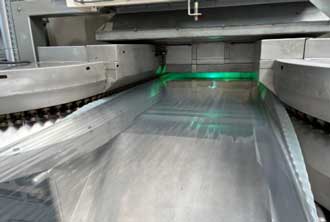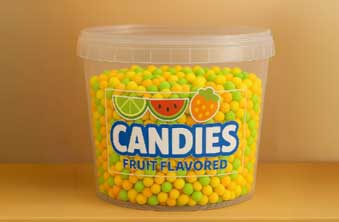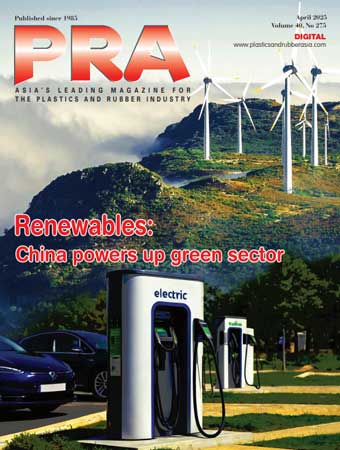Green materials: PureCycle/Brückner complete PCR-based BOPP film trials; Taghleef develops detachable IML film for recycling

Materials firm PureCycle Technologies Inc has announced the successful completion of larger-scale trials with its PureFive resin, which contains 50% post-consumer recycled (PCR) content, in biaxially oriented polypropylene (BOPP) film, noting that 16,000 m of nearly 1-m-wide BOPP film, at various thicknesses, was produced by Germany-based Brückner Maschinenbau, a supplier of production lines for manufacturing a wide range of stretched films.
During the trials, the PureFive resin performed similarly to virgin PP on Brückner’s film line that runs at 40 m/minute, it added. Two different types of film were made during the trials. A 25 micron, multi-layer film was produced with the PureFive resin comprising as much as three of the five layers. This type of film is commonly used in food packaging. Additionally, a thicker film of approximately 50 microns was produced for companies that make labels. The film samples are now being shared with potential customers.
BOPP film has a wide range of end-use applications, including food packaging for snacks, candy and baked goods. It is also used for labelling and adhesive tape. BOPP film is popular in these applications due to its transparency and moisture and chemical resistance.
Head of the Technology Centre at Brückner Siegsdorf, Markus Koppers said, “These latest trials with PureFive resin are a big step forward for the industry. PureCycle is proving that a dissolution recycling process can take post-consumer curbside waste and transform it into a recyclate that can perform like virgin polypropylene in applications where the technical properties are incredibly stringent.”
In other news, to facilitate the recovery of packaging at end of life, Taghleef Industries has developed an in-mould label (IML) film for rigid PP containers that detaches during the mechanical recycling process, helping to maintain the quality of recycled materials.

In-mould labelling (IML) is widely used in rigid plastic packaging due to its durability and visual appeal, without the need for adhesives. Traditional IML films, however, often remain attached during recycling, which can affect the purity of recovered PP, explained the company.
Taghleef’s new technology addresses this by allowing the label to separate early in the recycling process, thanks to a uniquely engineered film structure. During mechanical recycling, labels—printed with non-bleeding inks and protected with lacquers—detach first during the grinding phase, and are then removed in the air elutriation stage, where they are directed to flexible plastic recycling streams.
The technology is compatible with existing IML and injection moUlding production lines and is designed to perform reliably under typical storage and usage conditions, including exposure to heat, cold, and moisture. According to Taghleef, the design does not affect the visual quality or branding performance of the labels.
The new film technology also supports compliance with the European Packaging and Packaging Waste Regulation (PPWR) and RecyClass guidelines.
(PRA)SUBSCRIBE to Get the Latest Updates from PRA Click Here»










